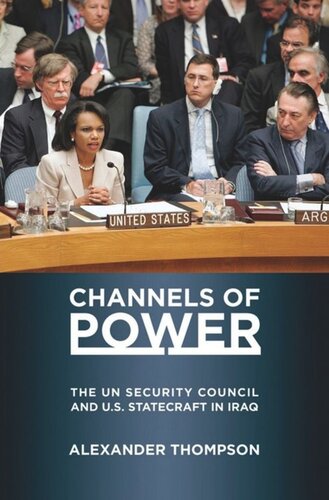

Most ebook files are in PDF format, so you can easily read them using various software such as Foxit Reader or directly on the Google Chrome browser.
Some ebook files are released by publishers in other formats such as .awz, .mobi, .epub, .fb2, etc. You may need to install specific software to read these formats on mobile/PC, such as Calibre.
Please read the tutorial at this link: https://ebookbell.com/faq
We offer FREE conversion to the popular formats you request; however, this may take some time. Therefore, right after payment, please email us, and we will try to provide the service as quickly as possible.
For some exceptional file formats or broken links (if any), please refrain from opening any disputes. Instead, email us first, and we will try to assist within a maximum of 6 hours.
EbookBell Team

5.0
80 reviewsWhen President George W. Bush launched an invasion of Iraq in March of 2003, he did so without the explicit approval of the Security Council. His father's administration, by contrast, carefully funneled statecraft through the United Nations and achieved Council authorization for the U.S.-led Gulf War in 1991. The history of American policy toward Iraq displays considerable variation in the extent to which policies were conducted through the UN and other international organizations.In Channels of Power, Alexander Thompson surveys U.S. policy toward Iraq, starting with the Gulf War, continuing through the interwar years of sanctions and coercive disarmament, and concluding with the 2003 invasion and its long aftermath. He offers a framework for understanding why powerful states often work through international organizations when conducting coercive policies-and why they sometimes choose instead to work alone or with ad hoc coalitions. The conventional wisdom holds that because having legitimacy for their actions is important for normative reasons, states seek multilateral approval.Channels of Power offers a rationalist alternative to these standard legitimation arguments, one based on the notion of strategic information transmission: When state actions are endorsed by an independent organization, this sends politically crucial information to the world community, both leaders and their publics, and results in greater international support.